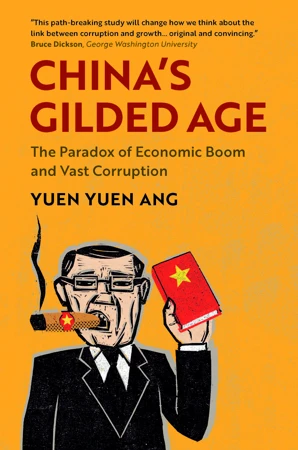China's Gilded Age – The Paradox of Economic Boom and Vast Corruption

Blurb
Why has China grown so fast for so long despite vast corruption? In China's Gilded Age, Yuen Yuen Ang maintains that all corruption is harmful, but not all types of corruption hurt growth. Ang unbundles corruption into four varieties: petty theft, grand theft, speed money, and access money. While the first three types impede growth, access money - elite exchanges of power and profit - cuts both ways: it stimulates investment and growth but produces serious risks for the economy and political system. Since market opening, corruption in China has evolved toward access money. Using a range of data sources, the author explains the evolution of Chinese corruption, how it differs from the West and other developing countries, and how Xi's anti-corruption campaign could affect growth and governance. In this formidable yet accessible book, Ang challenges one-dimensional measures of corruption. By unbundling the problem and adopting a comparative-historical lens, she reveals that the rise of capitalism was not accompanied by the eradication of corruption, but rather by its evolution from thuggery and theft to access money. In doing so, she changes the way we think about corruption and capitalism, not only in China but around the world.Book summary
This book debunks one of the most popular and strong assumptions about economic development: that corruption hurts economic growth. Therefore, eradicating corruption in the government is generally thought of as a precondition of sustained economic development. However, the Chinese economy that has been one of the fastest growing economies in the past three decades is plagued with widespread corruption. Ang breaks down conventional wisdom about corruption and argues that not all corruption is the same, and that in all instances corruption does not hamper growth. Ang argues that corruption is a fundamental feature of capitalism, and some types of corruption that involves elite political actors and high monetary stakes and the allocation of valuable resources such as land and legislations can actually spur investment, and thereby economic development. However, corruption has other implications for resource allocation, systemic risks, and inequality.

